We used ChatGPT to write a protocol, here’s what happened.
If we’ve heard it once, we’ve heard it 1000 times – ChatGPT.
Our teenage son was the first to bring it to our attention. Interestingly, he was also the first to tell us how “stupid it was that people couldn’t write their own stuff” (his words, not ours).
Then, a friend of ours, who is going back to college in her 40s mentioned it. She has been struggling to balance work, school, and life and was amazed that “this thing could write her papers for her”.
Most recently, a practitioner we know was working on writing content for her website and was beyond thrilled, calling it "a Godsend!”
Now, if you know us at all, you might be able to guess how we might feel about something like ChatGPT.
But if we know you at all, you might be curious about it.
Should health professionals use it? If so, in what context – in social media posts, articles, or patient protocols?
And true to form, we’ve done some investigative journalism on everything you, as a health practitioner, should be considering when it comes to this topic.
In fact, we find this so important, we’ve prepared a multi-part series that we’ll be sending you over the next few weeks.
Today, we’re going to kick off the conversation with using ChatGPT to write protocols.
To explore whether to use ChatGPT in this context, we took it for a test drive.
Honestly, we were surprised at what happened.
There are screenshots below to show you exactly what below but it, in essence we asked it questions like:
-
What supplements should I take for gas and bloating? (It told us, including specific supplements, dosages, reputable brands, and where to get them).
-
What dietary changes should I take for gas and bloating? (It provided a meal plan and outlined specific foods to include and avoid to reduce symptoms).
-
What lifestyle changes should I make to relieve gas and bloating? (For this too, it listed solid suggestions).
Take a look at how easy ChatGPT made it to find supplement recommendations:
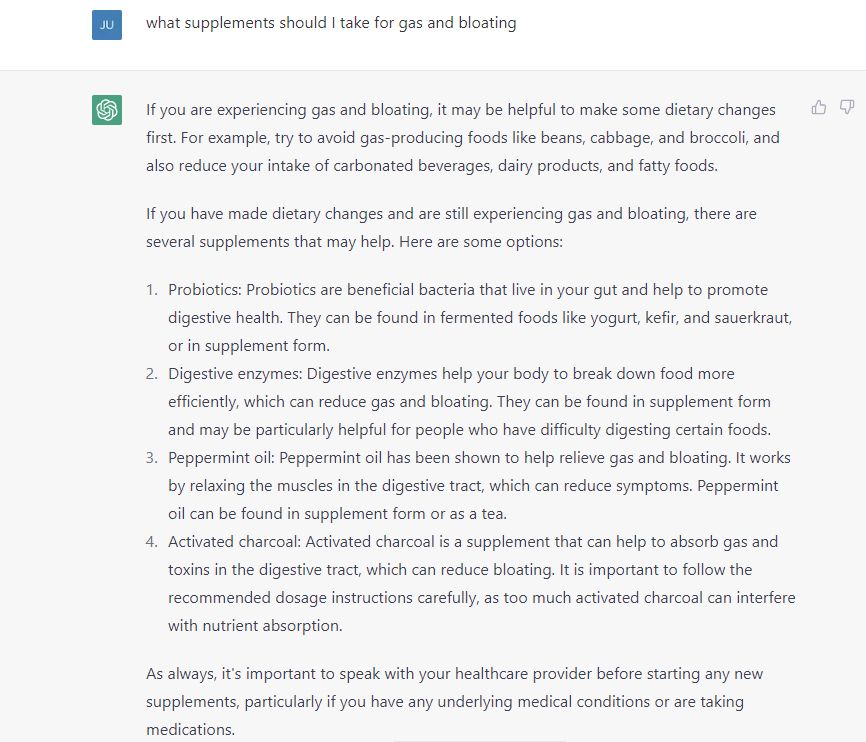
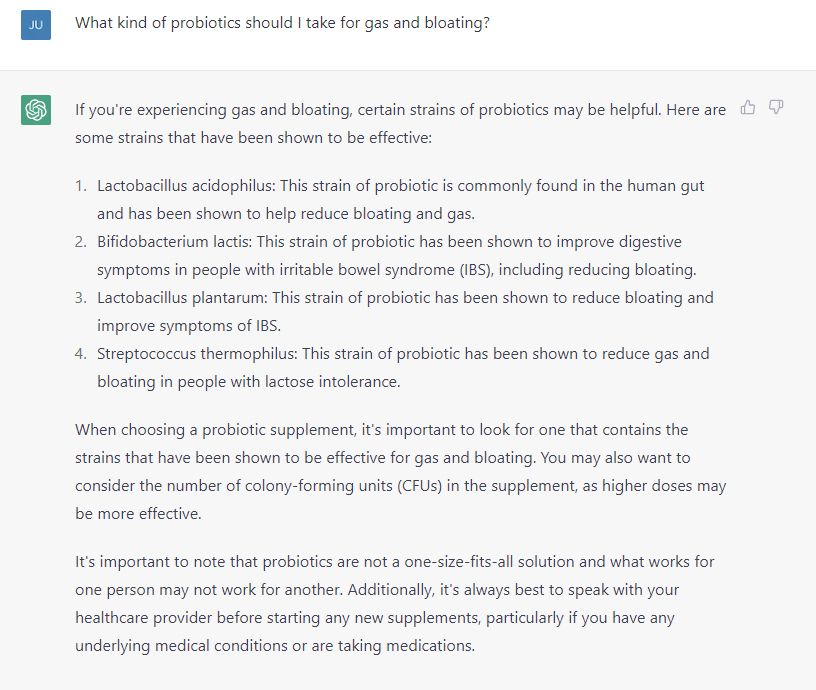
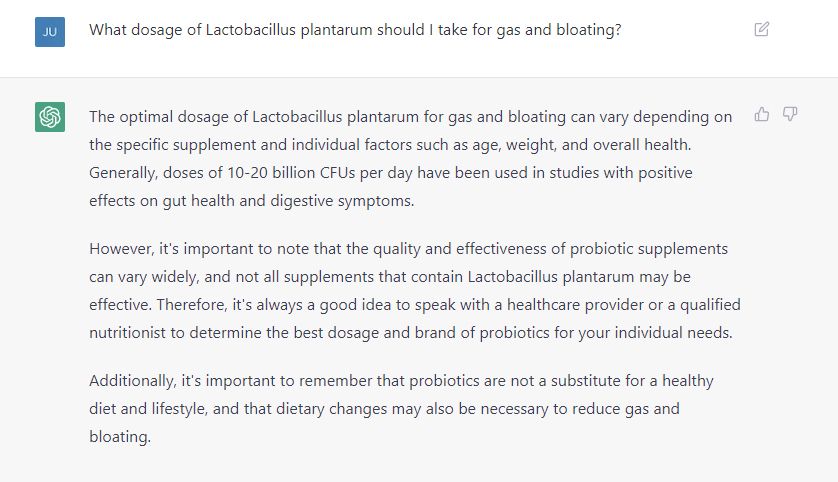
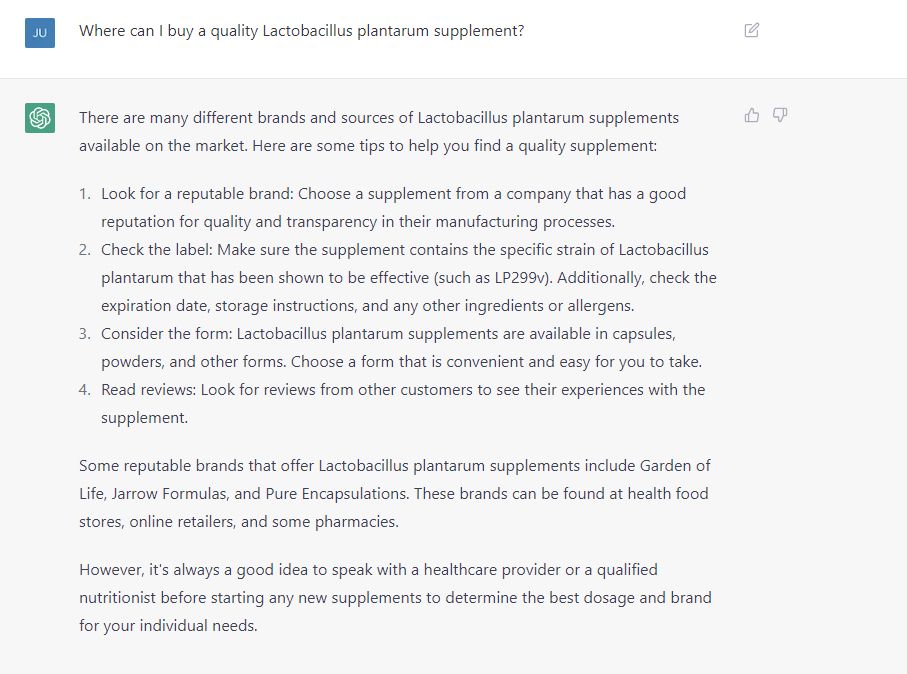
And here's what it suggested when it came to dietary changes for gas and bloating:
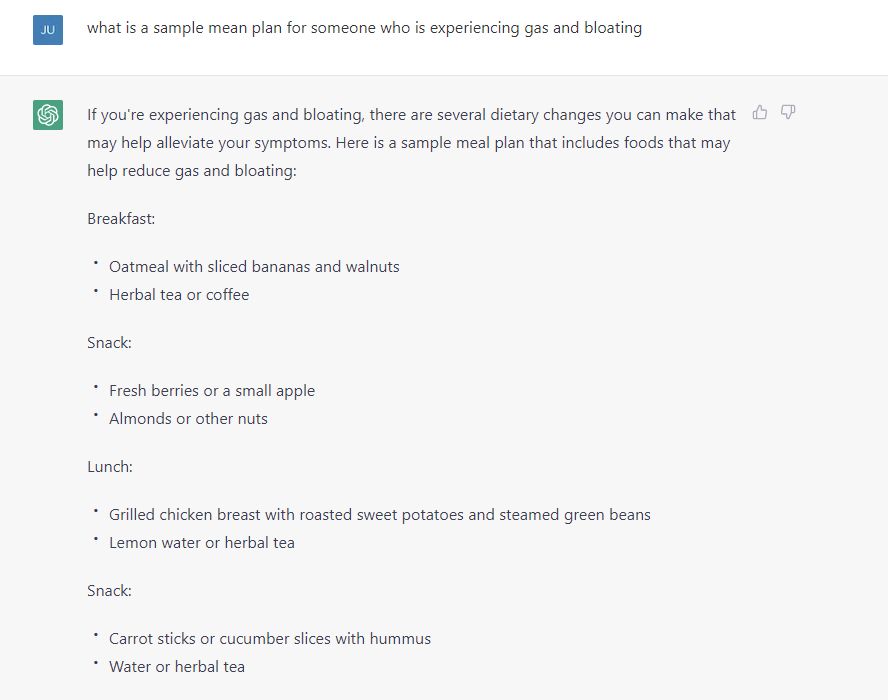
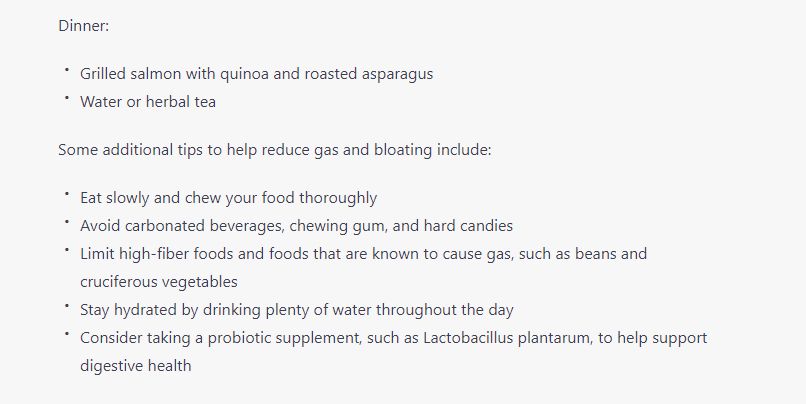
When asked about lifestyle changes for gas and bloating, here are ChatGPT's suggestions:
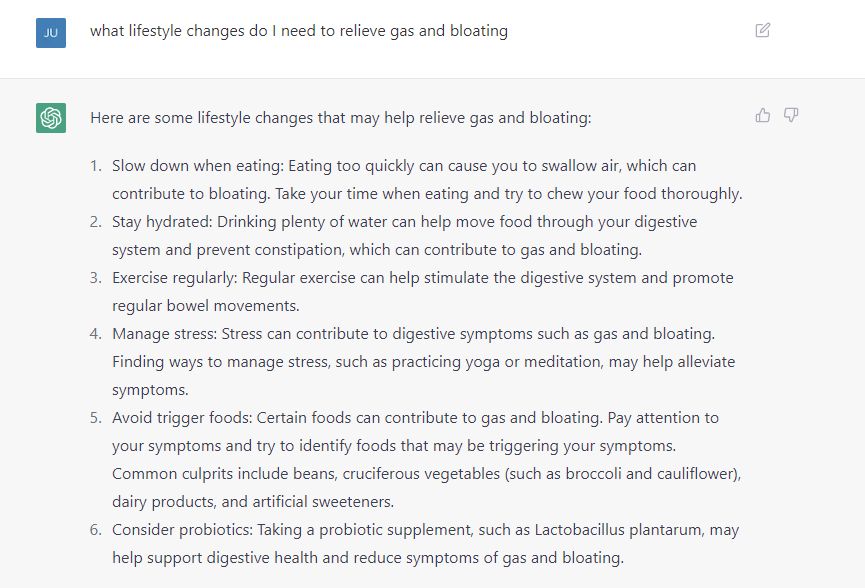
We looked at that too.
We asked, “What functional medicine test should I do to evaluate my gas and bloating?"
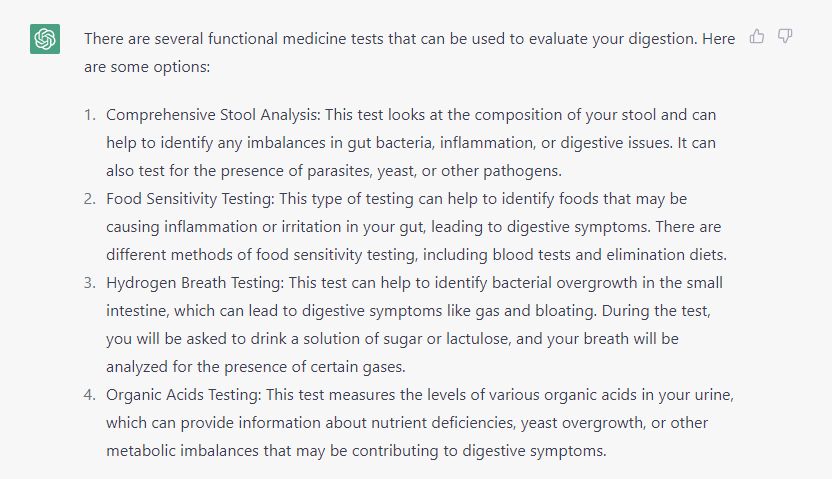
Of course, one would want to know where to order this test, so we asked that too.
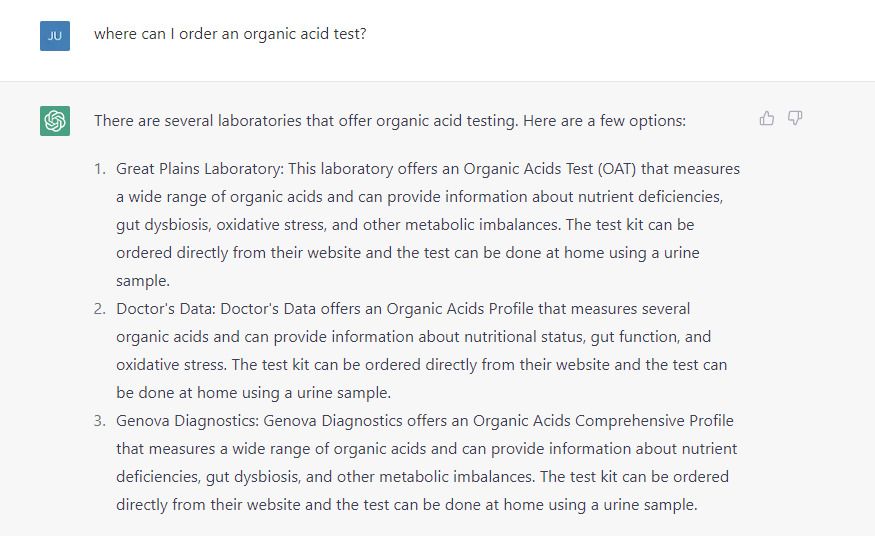
“What third-party site allows a consumer to order functional medicine tests like the organic acid test?” was our next question.
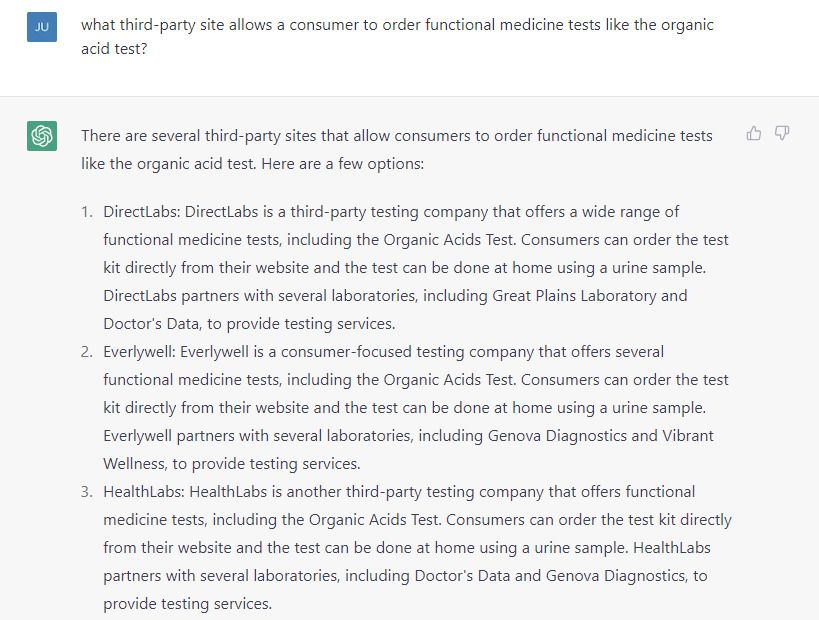
But just for fun, we typed in “How to interpret an organic acid test?” and let’s just say the answer wouldn’t disappoint most people.
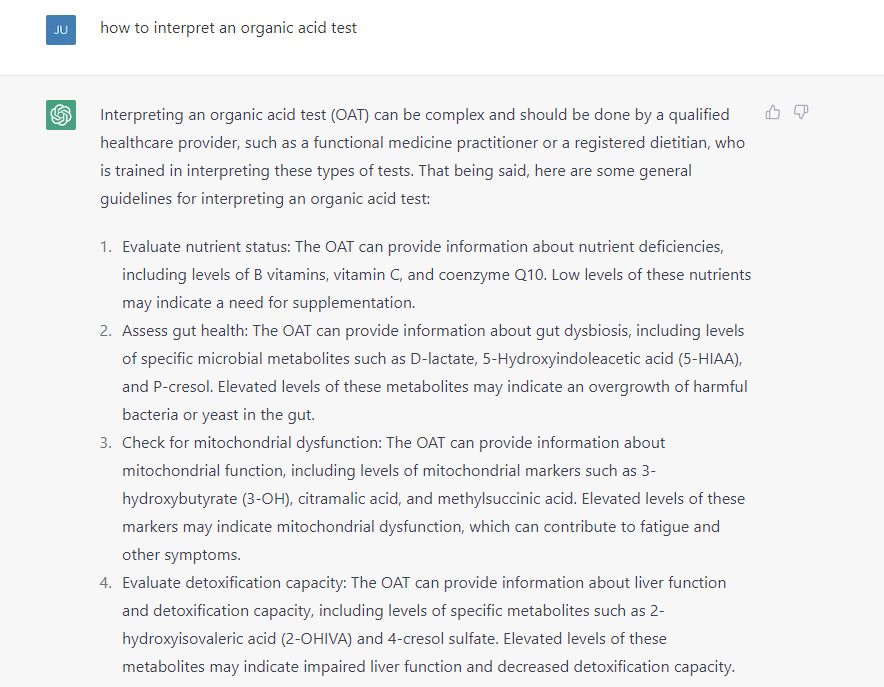
To sum it up, in under 5 minutes, this AI bot outlined a specific protocol for someone struggling with gas and bloating including:
-
Nutritional Recommendations
-
Supplement Recommendations
-
Lifestyle Recommendations
-
Testing Recommendations
-
How is this different from what you are doing?
-
What are the upsides of this thing?
-
What are the downsides?
-
Is this a good idea or a bad one?
Join our mailing list
Learn the PRAL Score of 30 Common Foods
Grab our free Reactive Hypoglycemia Playbook
See Inside the Program
Fill in your information below and we'll give you access to a free inside look into the entire program.
Thank you!

